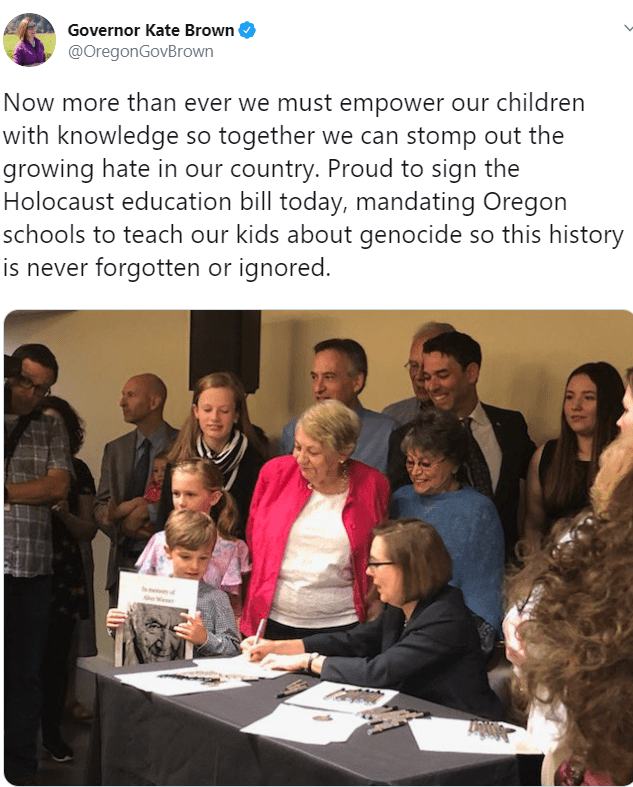Trending Now
Learning from history is critical. As the saying goes, if we don’t learn from history, we’re doomed to repeat it. One of the bleakest chapters of our history is the genocide of Jewish and other peoples during World War II, known as the Holocaust. Six million Jews were killed by the Nazis, as well as over 5 million people with disabilities, people who were gay or lesbian, and Roma people (again, among others).
But as time goes on, events fade from memory. For example, a 2018 study conducted by the Conference on Jewish Material Claims Against Germany showed that 66% of millennials did not know what Auschwitz was, and that two-thirds either hadn’t heard of the Holocaust or weren’t sure they’d heard of it.
If you’re one of those people: Auschwitz was the largest concentration camp complex, and 1.1 million people died there, including almost 1 million Jews.
Claire Sarnowski, a 14-year-old, introduced the law in Oregon. She was motivated by her friendship with Alter Wiener, a Holocaust survivor who died in December 2018. According to The Oregonian, Sarnowski didn’t want history to repeat itself.
“Learning about genocide teaches students the ramifications that come with prejudice of any kind in society,” she said.
What are the consequences of not remembering our history? According to the Anti-Defamation League, anti-Semitic incidents are on the rise. In 2018, they recorded 1,879 anti-Semitic incidents, including the deadliest attack on Jews in the history of the United States: the attack on the Tree of Life Synagogue in Pittsburgh, Pennsylvania.
According to the new Oregon law, schools must teach “the immorality of the Holocaust, genocide, and other acts of mass violence.” The law goes into effect for the 2020-2021 school year.






